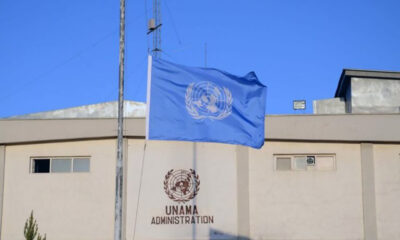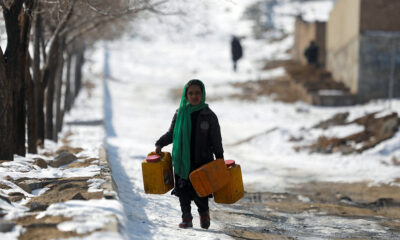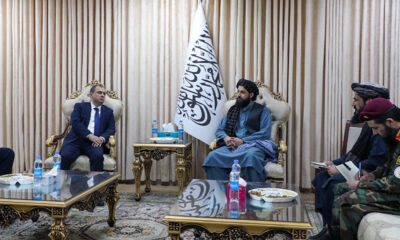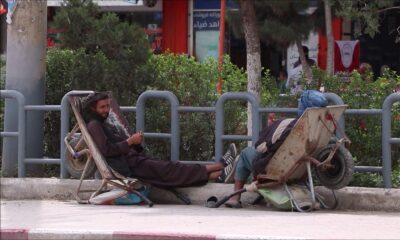Latest News
MSF ‘deeply concerned’ over new phase of deportations of Afghans from Pakistan

Médecins Sans Frontières (MSF) said Wednesday it was deeply concerned for the rights and welfare of Afghan refugees in Pakistan in the wake of the recent announcement by Islamabad that it plans to start Phase Two of the deportation campaign.
Pakistan is home to an estimated 3.7 million Afghans, and a reported 500,000 have crossed the border so far.
Many Afghans living in Pakistan have been there for decades and have spent more time in the country than their country of origin, without any legal recourse to remain in the only place they can effectively call “home”.
For many Afghans, Islamabad’s “repatriation” campaign means packing up their belongings and carrying them on a horse, cart, car and bus and traveling en masse to a country that is already struggling with widespread poverty, inadequate health services and increased restrictions on women, MSF said in a statement.
The second phase of the deportations leaves an estimated 800,000 Pakistan-issued Afghan Citizen Card (ACC) holders vulnerable to return, while phase three is expected to result in the further deportation of UNHCR-issued Proof of Registration (PoR) card holders, MSF said.
MSF first started working in Pakistan in 1986, and today provides much-needed medical care to people in Balochistan, Khyber Pakhtunkhwa and Sindh provinces.
The Islamic Emirate of Afghanistan (IEA) and UN agencies estimate that more than half a million people have been deported from Pakistan or voluntarily returned to Afghanistan in the past six months.
The United Nations High Commissioner for Refugees said last month that nearly two million Afghan refugees are living in Pakistan and that the agency needs $368 million this year to assist these people.
Latest News
UNAMA issues latest rights report, notes ongoing challenges for women, girls and media
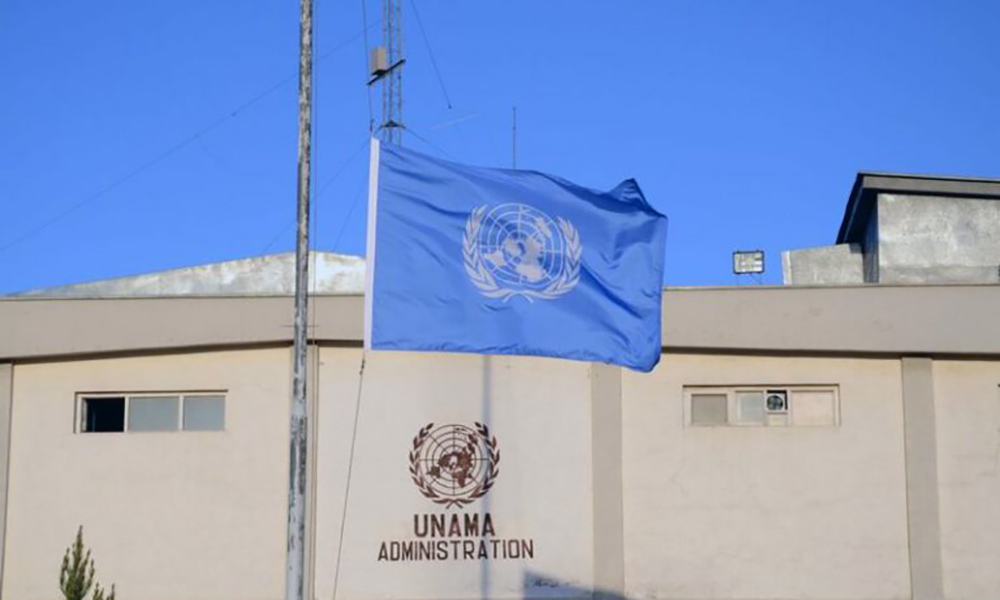
The Special Rapporteur on the human rights situation in Afghanistan, Richard Bennett, urged the United Nations Human Rights Council to keep Afghanistan and its people at the forefront of its agenda.
“It is important to hold the Taliban (Islamic Emirate) to account for their policies and actions,” he told the UN rights body this week.
Bennett’s account coincided with the UN mission in Afghanistan’s (UNAMA) latest report on the human rights situation – covering the period from January to March 2024.
In its report, UNAMA said that while the new school year in Afghanistan commenced in April, it did so without the presence of Afghan girls in high schools.
The report also stated that an invitation to attend a ceremony in Kabul marking the commencement of the new academic year, issued to media by the Ministry of Education, specifically instructed women journalists not to attend, citing a “lack of proper place[s]” for women.
UNAMA did however point out that while they still received reports of the enforcement of the hijab instruction,such incidents significantly decreased after January 2024 with the cessation of the large-scale enforcement actions which took place between December 2023 and January 2024.
On the issue of freedom of media, UNAMA said the situation for journalists was “mixed”.
“Some journalists have reported an improvement in access to information with the appointment of spokespersons for de facto line departments at provincial level and the establishment of WhatsApp groups by some de facto entities to distribute information.”
However, journalists and media workers continue to operate in a challenging environment, with the media facing significant financial challenges, in addition to a range of restrictions imposed by the Islamic Emirate and the risk of arbitrary detentions.
Between January and March, at least four journalists were arrested, including one from Japan’s Kyodo news agency. All have since been released.
UNAMA stated however that threats to former government officials and former ANDSF members, including arbitrary arrest and detention, torture and ill-treatment and extrajudicial killings, continue to be reported to UNAMA Human Rights, despite the general amnesty announced by the Islamic Emirate.
On the death penalty and corporal punishment, UNAMA reported that the Islamic Emirate carried out three public executions of individuals sentenced to the death penalty.
“In all three instances, the de facto authorities stated that the death penalty was implemented in accordance with a sentence upheld by three de facto Courts (District, Appeal and Supreme) and approval by the Taliban leader,” the report read.
Latest News
Neglecting climate change in Afghanistan will be catastrophic: IEA
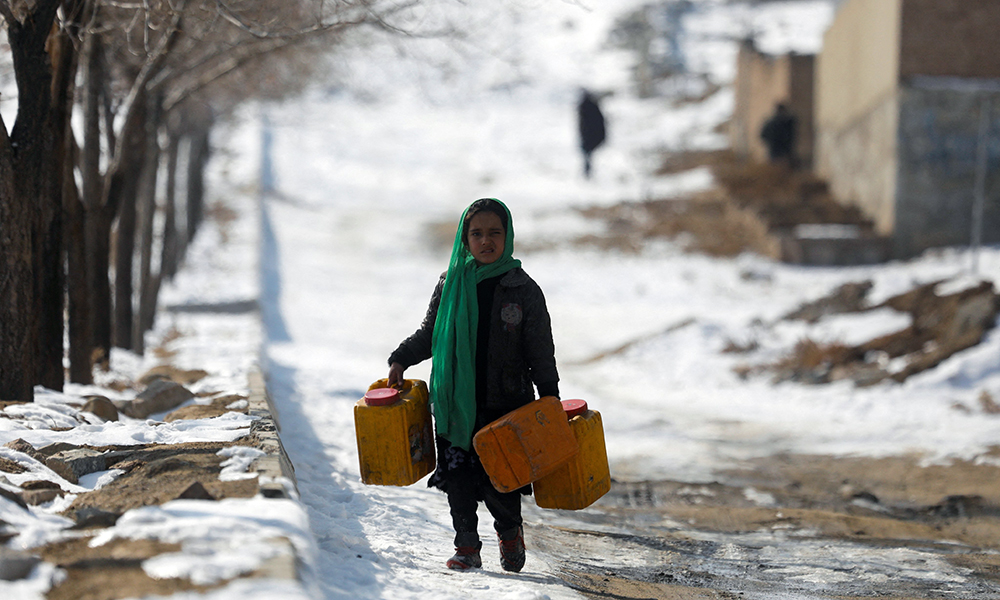
Afghanistan stands among the nations that continue to face devastating consequences of climate change, but despite this the country has had to endure blatant injustice on the part of the international community regarding this critical issue.
After the return to power of the Islamic Emirate, the international community not only imposed various sanctions, but approached the issue of climate change in Afghanistan from a political perspective.
Consequently, with the suspension of 32 environmental and climate change projects, restricting Afghanistan’s access to pledged financial resources, and the exclusion of Afghanistan from regional and international meetings and conferences on environmental and climate issues, there has been blatant injustice against the people of Afghanistan.
In an article published by the Islamic Emirate’s official al Emarah on Thursday, the Islamic Emirate stated that as the Earth’s temperature continues to rise, climate change poses a threat to all facets of human existence.
Pointing out that countries lacking in resources, including Afghanistan, face heightened vulnerability to the perils of climate change, as they lack the requisite means and infrastructure to effectively mitigate and manage its effects.
According to information from Afghanistan’s National Environmental Protection Agency (NEPA), temperatures in the southern regions of the country have increased by 2.4 degrees Celsius over the past century, Hindu Kush regions by 1 degree Celsius, central and northern highlands by 1.6 to 1.7 degrees Celsius, and eastern regions of Afghanistan by 0.6 degrees Celsius.
This has created numerous problems in urban and rural areas of Afghanistan, including increased poverty, migration, recurring droughts, floods, rising temperatures, destruction of farms and forests, food shortages, livestock deaths, and the emergence of various diseases.
“These can be identified as the undesirable consequences and impacts of climate change in Afghanistan,” the report read.
The continuation of this situation has severely affected not only the water, agriculture, livestock, forests, and grasslands sectors but also significantly impacted the social and economic lives of the people of Afghanistan, as well as health, energy, biodiversity, and ecosystems, al Emarah reported.
Despite the challenges and existing problems, officials at NEPA have made necessary efforts to manage the issue of climate change in Afghanistan utilizing available resources. Over the past three years, practical steps have been taken regarding drafting, revising, and amending laws, policies, regulations, and work plans, as well as project design.
Revision of environmental laws, national environmental policy, regulations on ozone-depleting substances, approval of the KIGALI Amendment to the Montreal Protocol 2020, and other related documents can be highlighted as prominent actions in the field of climate change mitigation.
Other steps have also been taken, including the prioritization of climate-compatible water and watershed projects, the restoration of degraded ecosystems, sustainable management plans for Nuristan National Park, sustainable forest and land management projects, and combating land degradation and biodiversity loss through enhancing sustainable food systems in Afghanistan.
The Islamic Emirate, under its environmental protection policy for Afghanistan, has placed climate change management at the forefront of its work priorities and has initiated efforts to mitigate the situation with the resources at hand.
With ensuring security nationwide, the Islamic Emirate has provided a conducive environment for implementing projects in various sectors across Afghanistan.
As climate change is an overarching issue, tackling the challenges and risks it poses requires joint efforts from all governments and collaboration among all stakeholders.
In light of this, the international community, nations, and pertinent organizations ought to prioritize environmental and climate change matters in Afghanistan. They should take practical and genuine steps by resuming suspended environmental and climate change projects, facilitating access to pledged financial resources, and creating opportunities for active Afghan participation in regional and international forums and conferences, al Emarah reported.
“Moreover, throughout this period, the people of Afghanistan have been directly impacted by the consequences of climate change, enduring significant financial and human losses.
“Therefore, the global community and pertinent organizations must extricate the environmental issue and climate change in Afghanistan from political spheres, conceiving it instead as a human dilemma,” the report read.
Latest News
Acting Minister of Defense meets with ambassador of Azerbaijan
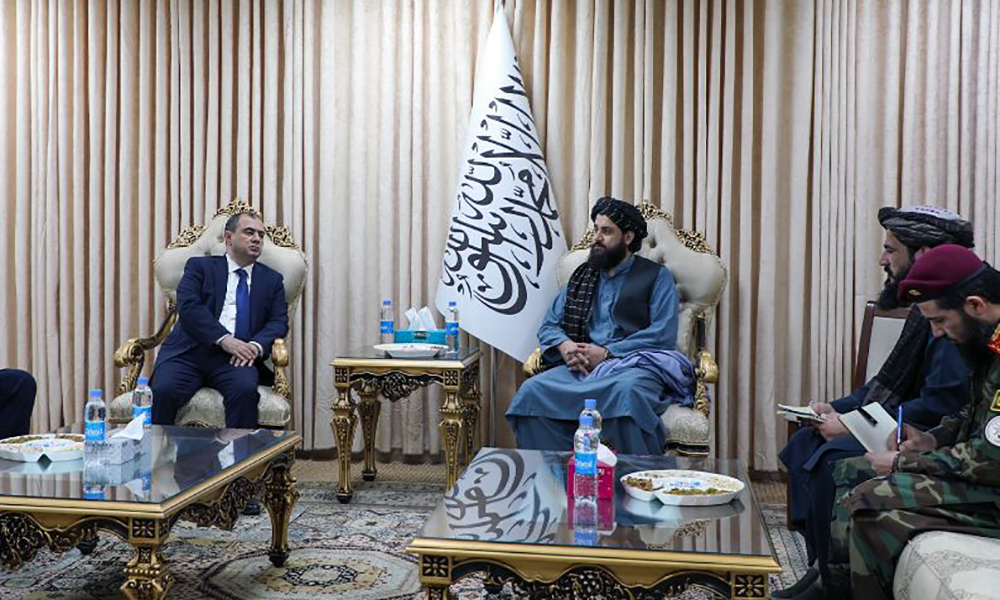
Mohammad Yaqub Mujahid, Acting Minister of Defense, met with the Ambassador of Azerbaijan in Kabul on Wednesday and said that the reopening of the Embassy of Azerbaijan in Kabul is a positive step to strengthening relations between the two countries.
The Ministry of National Defense quoted Mujahid as saying, in a statement, that the friendship and commonality between the people of the two countries is as a Muslim friend.
Mujahid called the reopening of the Azerbaijani embassy in Kabul a positive step and said that to consolidate these long-standing relations, “we want to start economic, commercial, and [ties in] other sectors as soon as possible.”
The ambassador of Azerbaijan also said that “we are ready to expand cooperation with the Islamic Emirate and the people of this country while strengthening relations.”
-

 Sport4 days ago
Sport4 days agoAfghanistan qualify for FIFA Futsal World Cup for first time ever
-

 Sport5 days ago
Sport5 days agoAsia must believe Afghanistan’s power in futsal: Mortezaei
-

 Sport1 day ago
Sport1 day agoAfghanistan announce T20 World Cup 2024 squad
-

 Sport4 days ago
Sport4 days agoACL: Mawj Sahil 2-1 Sarsabz Yashlar; Sorkh Poshan 6-0 Maiwand
-
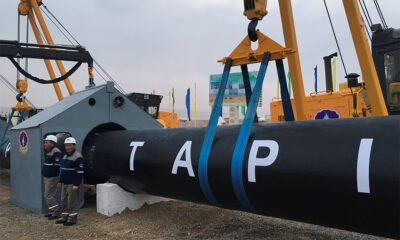
 Latest News4 days ago
Latest News4 days agoTurkmenistan committed to complete TAPI energy project
-

 Sport3 days ago
Sport3 days agoKohli slams strike-rate talk and pundits ‘from the box’
-

 World4 days ago
World4 days agoPolice arrest scores of pro-Palestinian protesters on US university campuses
-
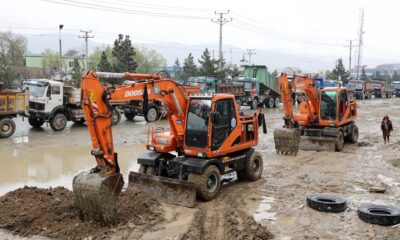
 Latest News5 days ago
Latest News5 days agoThree road construction projects launched in Kabul


